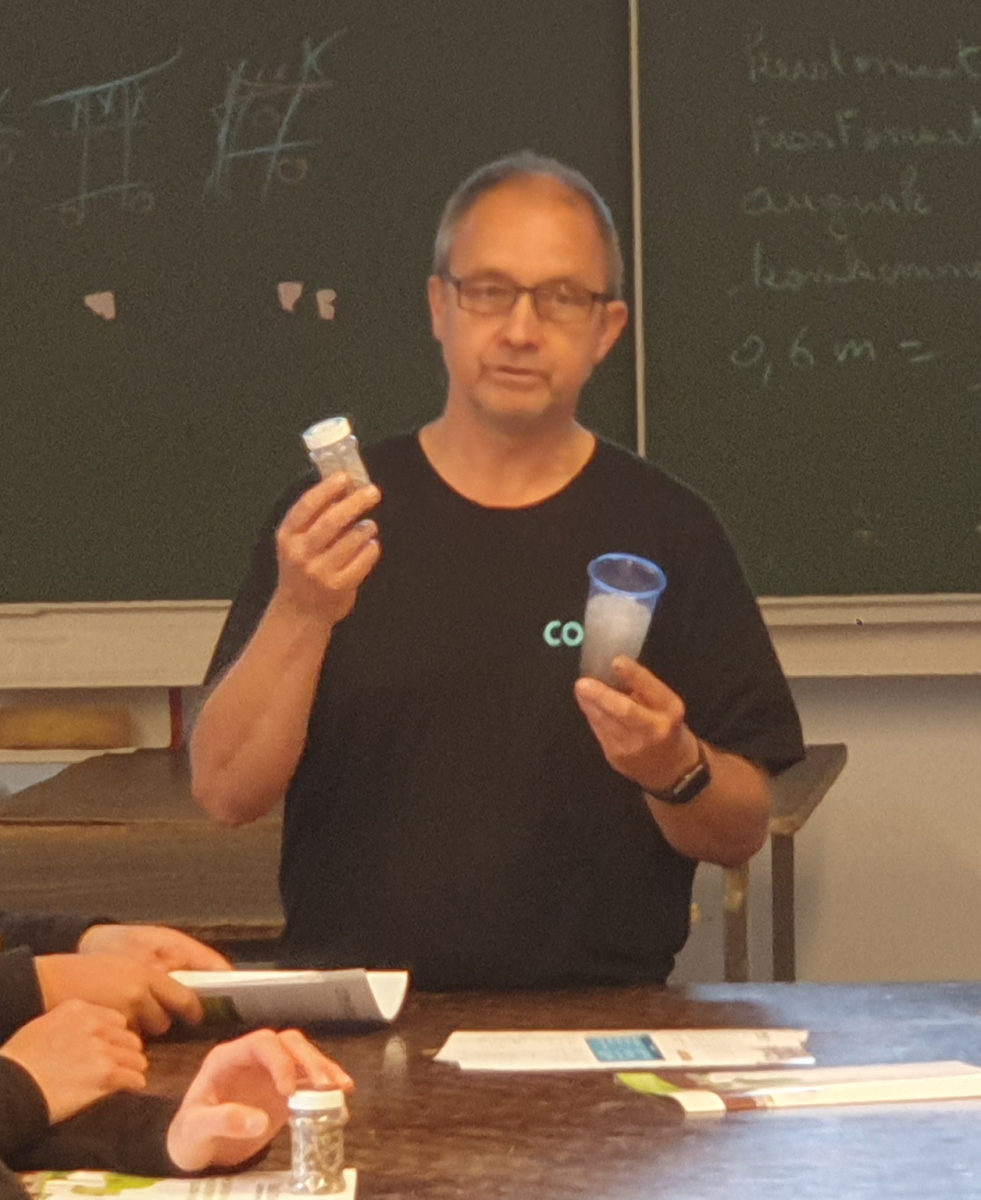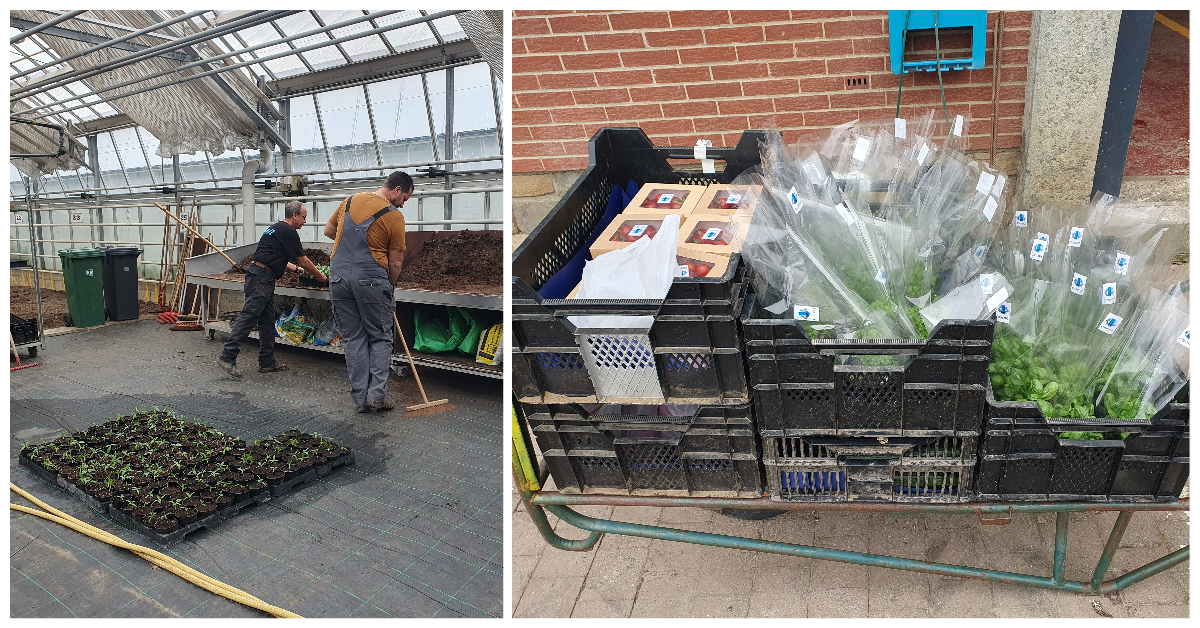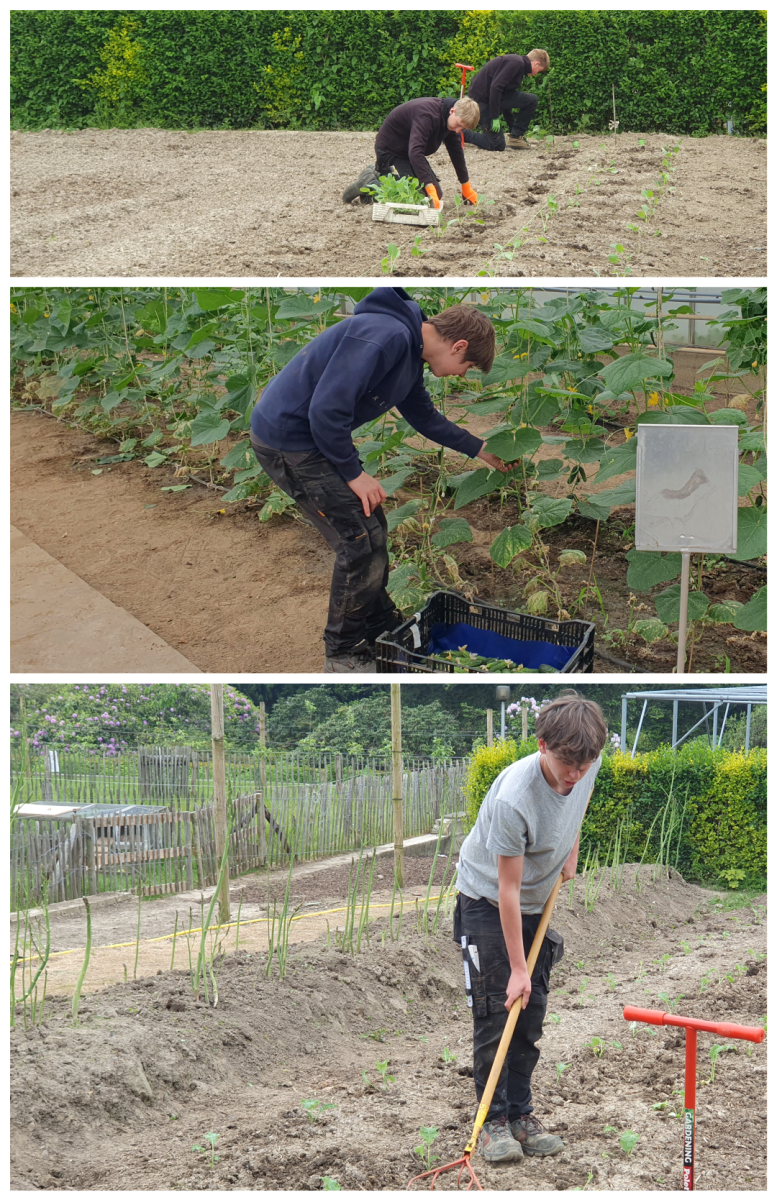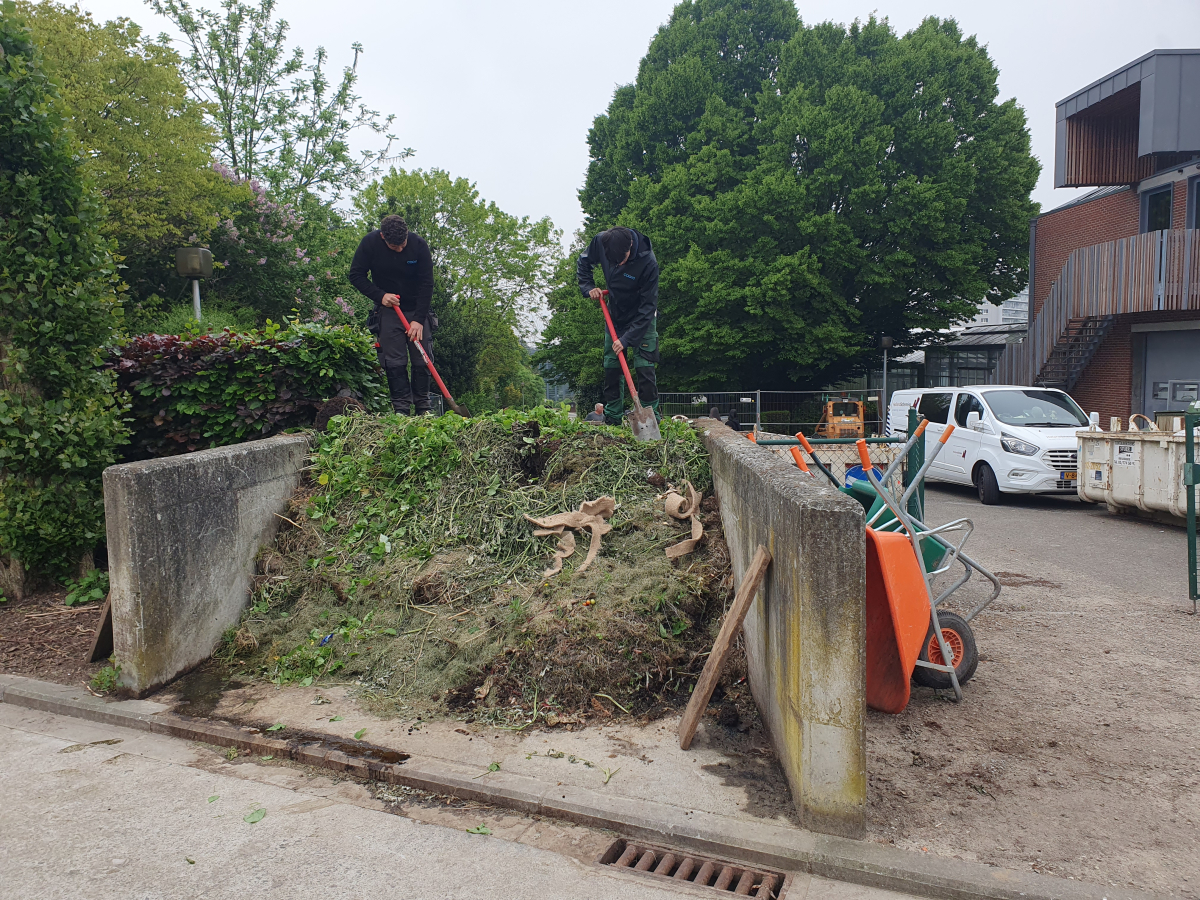Professional expertise at the service of horticultural and landscaping education
09/10/2023 - 10:17
During our anniversary year, we share conversations with some of our longstanding clients and partners such as Johan Beernaert. Johan teaches at the horticultural school COOVI in Anderlecht in Belgium and also gives evening classes to professionals in the gardening industry.
 |
When he started working with the TerraCottem soil conditioner some 30 years ago, Johan was a sales representative with one of the first TerraCottem distributors in Belgium. He explains what drove him to make the transition from technical sales representative to full time teaching in horticulture and landscaping. |
Hi Johan, since when have you been active in horticulture and landscaping?
I got in contact with horticulture through my schooling at the age of 12. I have always had it in me. My great-grandfather was a farmer. I started growing organic vegetables on a small piece of abandoned land during my secondary education. Later, during the final years at school I also did some garden construction and maintenance here and there.
What training did you pursue for your professional career in gardening?
During my secondary studies, I trained as a horticultural technician at the VABI, in Roeselare, Belgium (1976-1983). Then, in Higher Education, I took a teacher training course in horticulture at the PTS in Mechelen where I graduated as a "Regent of Horticulture" or officially as an "Aggregate for Lower Secondary Education - Department of Agriculture and Horticulture - Horticulture option" (1983-1984).
How did your career in professional horticulture and landscaping evolve?
After my student days and civilian service at the Children's Farm Van Cle in Marke, I started working in the indoor plant sales department at a plant wholesale business in Sint-Katelijne-Waver in 1986. In 1991, I moved on to the wholesale trade in garden construction and amenity where I became the first sales representative at the Dockx- Disaghor company for more than 25 years (1991-2018).
What was your field of expertise?
I started at Dockx-Disaghor as a technical sales representative for potting soils and hardscaping materials. Later on, I became responsible for developing and marketing innovative substrates such as potting soils and lava and roof garden substrates. Especially the latter were my specialty; following up projects from the tender prescription by landscape architects to training contractors in executing their roof garden projects, swimming ponds and other green projects.
When did you make the switch from the professional landscaping industry to horticulture and landscaping education?
My intention was to first gain knowledge in the professional sector and then transfer it to future professionals. The transition from the professional industry to education happened gradually. First, I combined my professional career in landscaping with teaching in adult education, specifically for roof gardens all over Flanders and with various landscaping courses. I have also been active as an accredited lecturer for the Flemish Community and various private gardening associations since 1986.
The full transition to secondary education could not be delayed any longer. Since the school year 2018- 2019, I have fully entered horticultural education as a teacher of horticulture for the 2nd grade (Plant/Environment) and was appointed as cultivation leader at the horticultural school COOVI at the 100-year-old horticultural school site in Neerpede.

Additionally, I give horticultural courses to adults such as in the CVO Brussels at Campus Coovi Anderlecht, on the authentic farm with landscaped garden complex. This all combined more than covers a full-time "teaching" job.
And what triggered this transition?
"During the combination of my professional career in the landscaping industry and the course I taught in evening classes, I experienced increasingly limited knowledge among students and novice professionals about the trade and products used in the industry."
The challenge was to raise the level of knowledge in various forms of education.
Through my teacher training and as a technical commercial consultant, I have always been fascinated to gather and impart knowledge.
What is the difference in experience between the landscaping industry and education.
In education you can follow the student's evolution and his increase in knowledge better. It is also easier to see his areas of interest on which you can then work further as a teacher. The spectrum in landscaping is so vast that it always remains interesting, you discover new things together with the students. The interaction is much greater.
What should you pay particular attention to in horticulture and landscaping education?
Depending on the possibilities of the students, you should look at what talents they have and how these can be further developed. In the first grade of our programme, the main focus is basic "nature" education. The 2nd grade focuses more on "plants, animals and environment". The 3rd grade concentrates on landscaping and green space management and the additional 7th year is even more professionally oriented with a course on "landscaping and urban green space".
Are students in horticulture and landscaping as motivated as the professionals in the industry?
Some students are because they already have a link to horticulture or landscaping from home. Others still have to find their way through the wide range of horticultural courses our school offers them. The horticultural study programmes offer a range of professional opportunities for their later employment, such as: garden centres, vegetable and plant nurseries, florists, forest and nature management, landscaping and public green spaces.
In general, do students have a basic plant knowledge?
At the beginning of their education, that knowledge is usually very limited. Therefore, even in the first 2 degrees, basic education on "nature" in general and "plant, animal and environment" in particular is emphasized. Here they learn how to grow vegetables, plants and flowers and practicums are given to learn by doing. Plant knowledge is also an important factor that is systematically built up during the course of the programme.

And what about soil conditioners, such as TerraCottem?
"Again, the knowledge of soil and soil enhancers is very limited. But it is crucial to include this in their education and to keep repeating it".
For this purpose, guest presentations are occasionally made from the professional industry to teach the students this basic knowledge from all angles. Practicums on soil improvement are also given. For instance, they learn to compost themselves by building a compost heap.

Which initiatives does the education sector take to interact with the professional industry?
Every year in September, a study trip is scheduled with the 2nd and 3rd grade students to professional trade shows. They have already visited the Floriade, Greenexpo and the Day of Public Space (Dag Van de Openbare Ruimte). We have also planned a visit to the National Grass Day (Nationale Grasdag) in September this year. An annual visit is also made to the National Botanic Garden (Nationale plantentuin) in Meise to sharpen the students' plant knowledge.
Finally, what gives you the most satisfaction in horticultural education?
The fact that I can transfer the professional knowledge I have acquired during my professional career to my students. I also get satisfaction from watching them evolve during their schooling in secondary education and that it eventually helps them build a future in their later professional career.
To conclude could you share some practical tips from your professional career that are important for both the professional landscaper and the student in horticulture education?
Five golden tips that I regularly pass on to my students and that may also be of use to the professional landscapers are:
- Think first and then act.
- Get to know your products and use them correctly.
- When in doubt, dare to ask information and questions from the experts.
- Learn something every day.
- Express your interest and motivation as a (future) professional in the things you accomplish
If you know someone who would also like to read this article, feel free to copy the link and share.
Would you like to be in the spotlight too?
You can!
Send a quick email to marketing@terracottem.be and we will schedule an online meeting together.
Would you like more information about our TerraCottem soil conditioning technology?
Contact usWould you like more information about our TerraCottem soil conditioning technology?
Contact usTerraCottem Intl. SL
Apartado de Correos 4511190 Benalup (Cádiz)Spain
